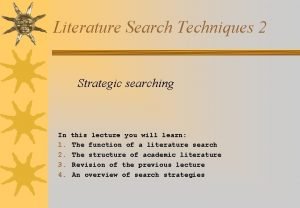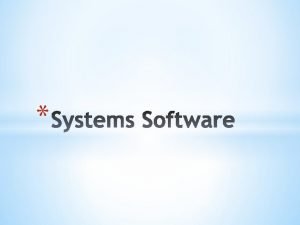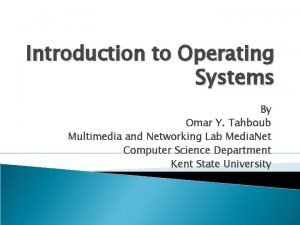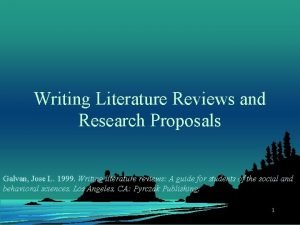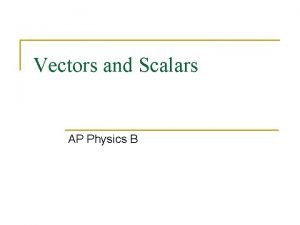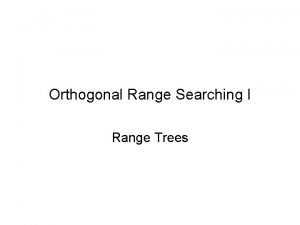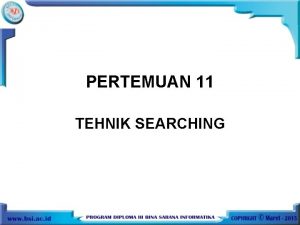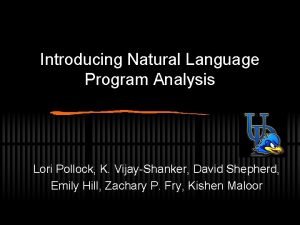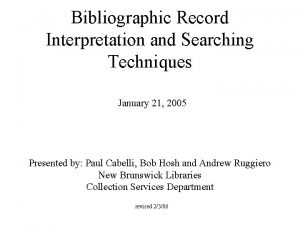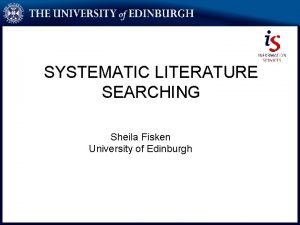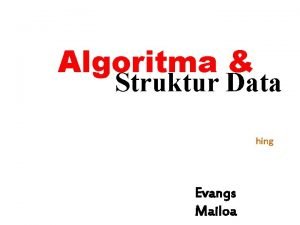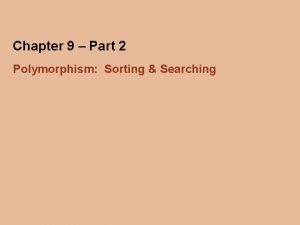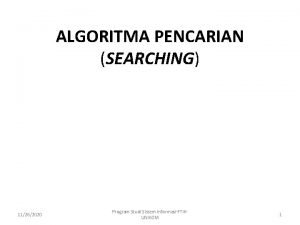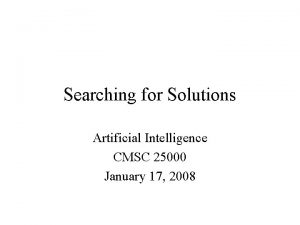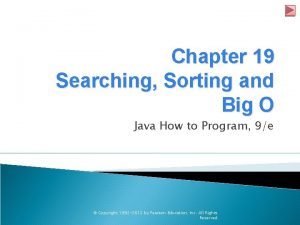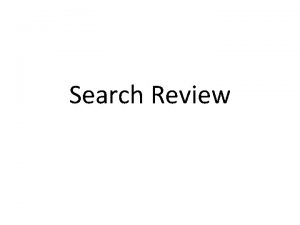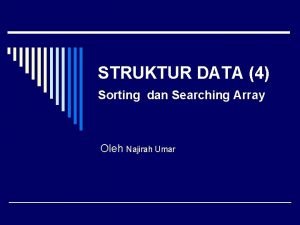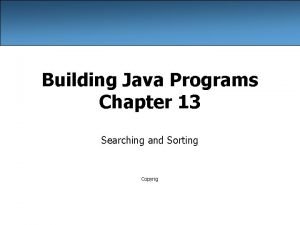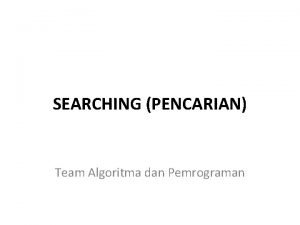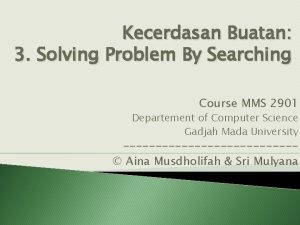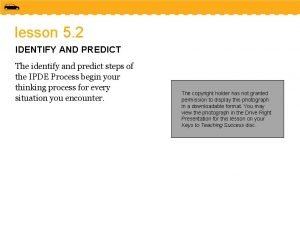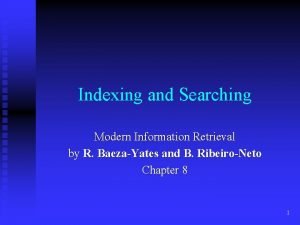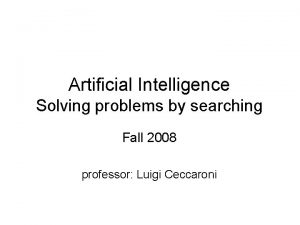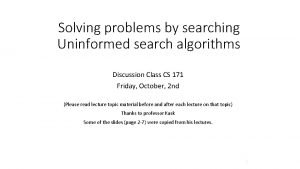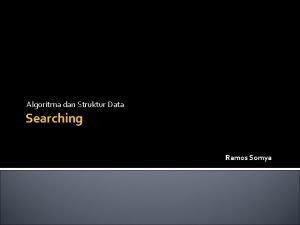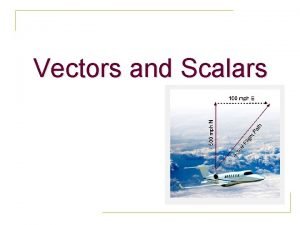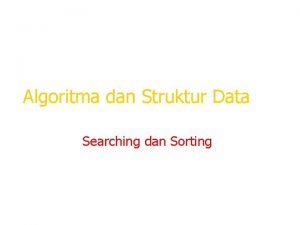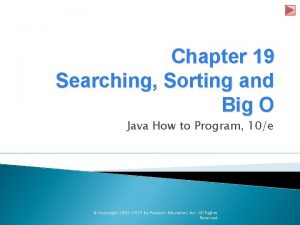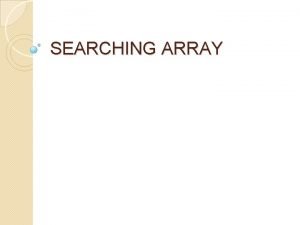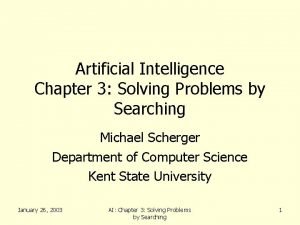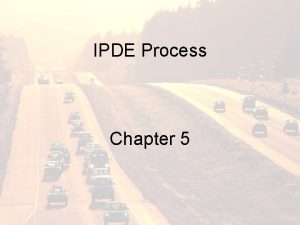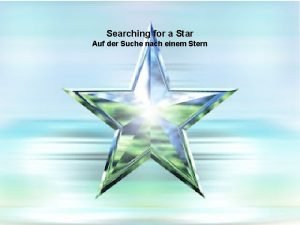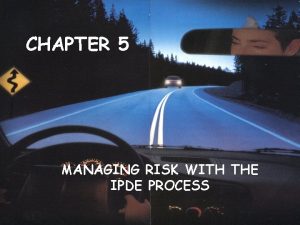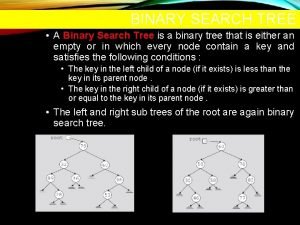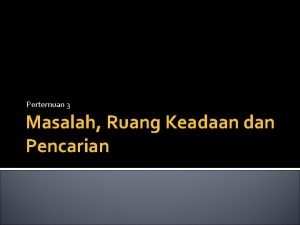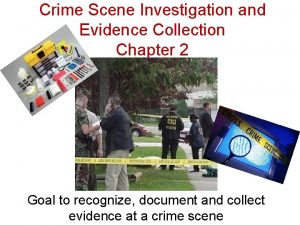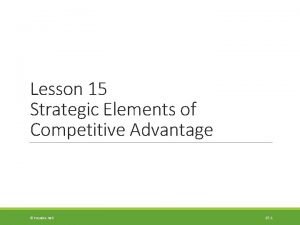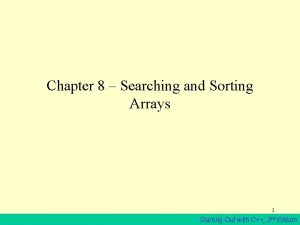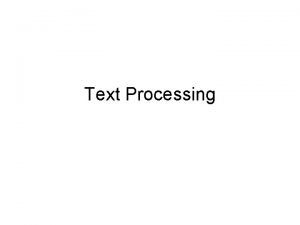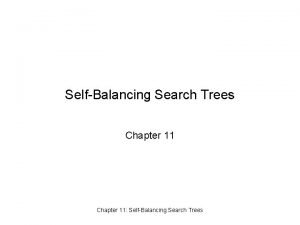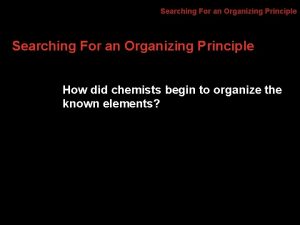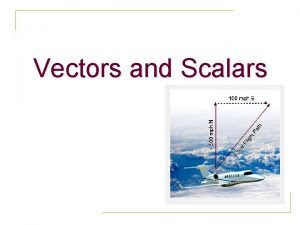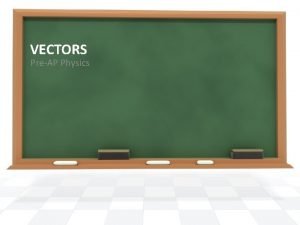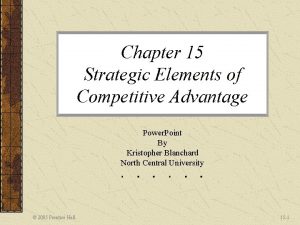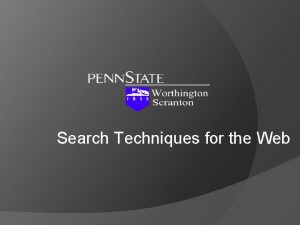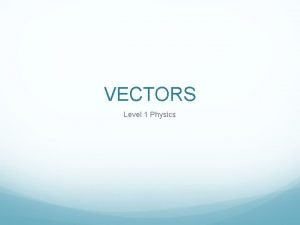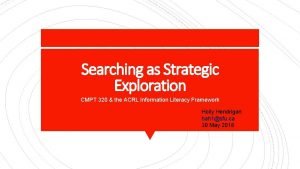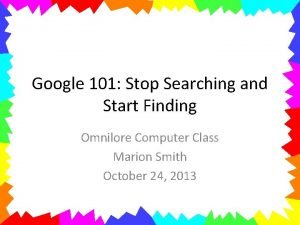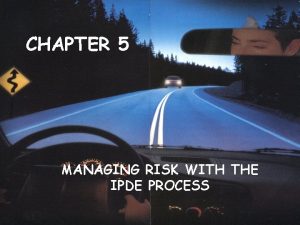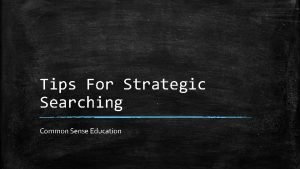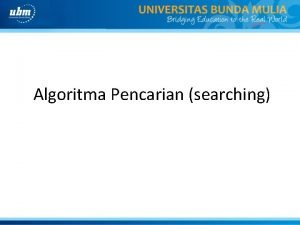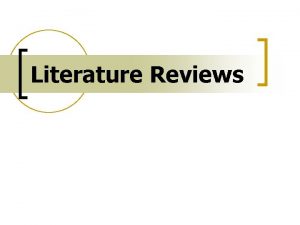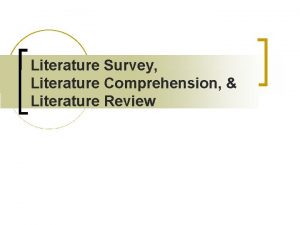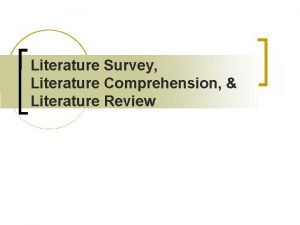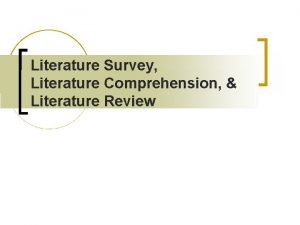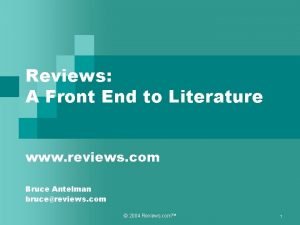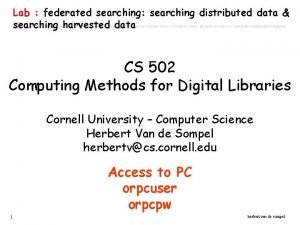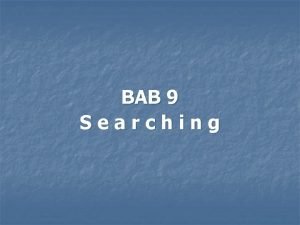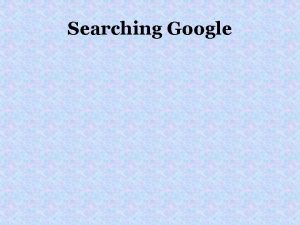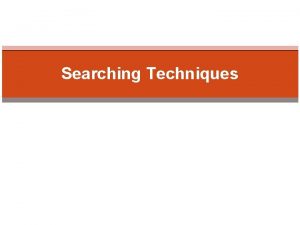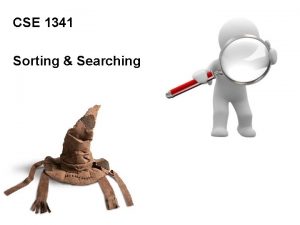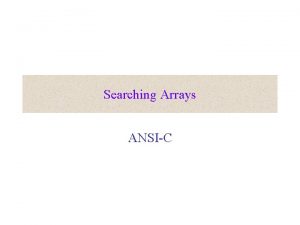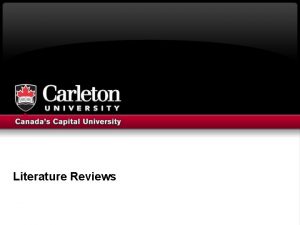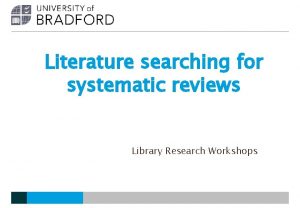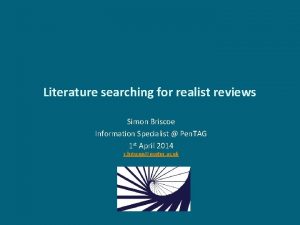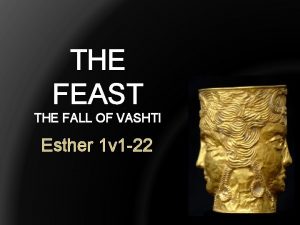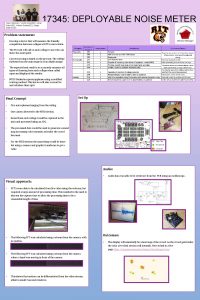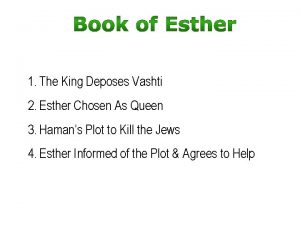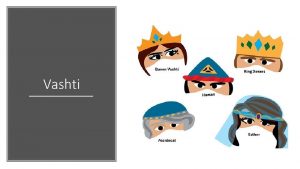Literature Searching Reviews SENRGY Postgraduates Vashti Zarach User






















































- Slides: 54

Literature Searching & Reviews: SENRGY Postgraduates Vashti Zarach User Support Librarian Main Arts Library

Section One: Literature Searching for information…. …where do you start?

What is a literature search? The process of hunting for relevant information on a chosen topic, making your best effort to: • Cover a broad range of good quality academic sources • Read the most influential and important literature written on the topic • Find some unusual or lesser known sources to demonstrate the breadth of your literature searching skills • Read both older, often quoted sources; and new, up-todate research • Store and save references and notes (e. g. using Refworks) so you remember what you read and what you thought

Choosing a research topic The first step is to choose a research topic for your essay, presentation, dissertation, or other assignment If you’re not sure what you want to research, you could begin by browsing through some of the library resources mentioned in this session, to see where your interests lie If you have a research topic, it be may very vague or very specific, either way, it may change as you find and read relevant literature Research topics: Tree Rings Snowdonia National Park

Choosing your key words Once you have a research topic, you need to express it as a selection of key words for searching Keywords are very important: using a good variety of relevant words makes it easier to find information For example, you might be researching the impact of climate change on cloud forests in the Amazon Keywords might include: Cloud forests, rainforests, tropical forests, subtropical forests, temperate forests, Amazon, climate change, environmental change, global warming

A cloud forest Pic from: http: //commons. wikimedia. org/wiki/File: Cloud_forest_mount_kinabalu. jpg

Using your key words The keywords you will use will depend on the amount of research available to you, and whether you need to widen or narrow your search For a search where you are not getting many results, you will need to use more general search terms and use fewer terms For a search with too many results, you will need to narrow your search terms as much as possible, pick the most relevant words, and possibly add extra terms or other limiters (such as date, etc) to find the most relevant material

Search tricks 1: “” Quotation marks: Searching more than one word without quotation marks searches a databases or search engine or catalogue for all those words individually, BUT searching with quotation marks searches the words as a phrase Search Google forest ecosystems, you will get 5 million results; but by searching for “forest ecosystems” you will reduce to 600, 000 more specific results This trick also works well when hunting for authors…

Search tricks 2: * Truncation (also called wildcard): Using * will allow you to search for multiple endings of a word, which can speed up your searching E. g. searching for environment* will search for: environment, environments, environmental, enviromentalism Or search for ecolog* to get ecology, ecologists and ecological You will need to think carefully about spelling to use this trick!

Search tricks 3: and/or/not And / or / not (also called Boolean searching): Using the words AND, OR and NOT can help you narrow and broaden your searches For example Wales AND mountains will search for any sources containing both words mountains OR hills will search for sources with the word mountains and sources with the word hills Wales AND mountains NOT australia will remove any sources with the word australia, very useful!

A Welsh mountain Pic: Yr Wyddfa / Snowdon, by Vashti

The library: physical… Deiniol Library, Deiniol Road, Bangor, contains printed books, journals and dissertations for SENRGY students:

The library catalogue Use the advanced search screen to get the best results: http: //library. bangor. ac. uk/search/X

Find books… The call number shows you where books are shelved:

Find e-books… Pick a subject and set material type to e-book:

Find journals… Pick a subject and set material type to journal: Searches for both printed and e-journals

Find e-journals… Pick a subject and set limit search to BU Electronic Resources only and material type to journal:

The library: virtual… Library e-resources page, contains links to e-journals, online databases, newspaper archives, old exam papers, etc

E-journal databases The library has around 150 electronic journal databases Each one is a collection of journals from a specific publisher (e. g. Sage, Oxford, etc) A small group of databases cover all subjects (Science Direct, Wiley-Blackwell, Springer, etc) and have a lot of journals Many cover specific subjects and may just have a few journals (Earthscan, Lyell, etc) *The library only buys some of the journals in the database so there will always be articles which you can’t access*

E-journal databases for SENRGY Use large databases covering all subject areas, especially: Cambridge Ingenta Informaworld JSTOR Oxford Sage Springer Science Direct Wiley-Blackwell Also try some subject specific databases, e. g. : Bio. One (biological and environmental subjects) Earthscan (climate development) EDP Sciences (forestry) Nature

Find e-journal databases Go to e-resources page, pick databases. Type in database name: These databases contain full text articles, but only for journals which the library buys, which is not all of them!

Bio. One (good variety of journals) A sample article from Natural Areas Journal in Bio. One:

Earthscan (a couple of journals) A sample issue of Climate & Development in Earthscan:

EDP Sciences Annals of Forest Science in EDP:

Springer Searching many journals (countryside conservation wales):

Ingenta Searching many journals (rainforests):

Bibliographic databases The library has a few bibliographic databases They are indexing databases: they hunt across many sources to find relevant research (journal articles, conference papers, books) for your keyword searches *They do not contain the full text articles* You may find some of the sources they list in our library journal databases, using Web. Bridge to link through If Web. Bridge says “sorry”, the list has probably given you an article from a journal the library doesn’t buy, but you can check in the library catalogue for the journal to be absolutely sure

Bibliographic databases for SENRGY CSA (abstracts only, many subjects) Web of Knowledge (abstracts only, many subjects) CAB Direct (abstracts only, life sciences) Green. FILE (abstracts and a few full text journals, environmental focus)

CSA Searches many sources, contains a range of databases, click one of the four subject areas to search, or specific databases to choose databases to search (and “continue to search”):

Web of Knowledge Searches many sources, click Web. Bridge to link to journals:

CAB Direct Searches many sources, click Web. Bridge to see if in library:

Green. FILE Click Web. Bridge to see if sources available (a few are full text):

Section Two: Literature Reviews So now you’ve searched the library catalogue, the e-journal databases and the bibliographic databases, and have found some useful books and articles You’ve read your collected sources and got a good overview of the area you’re researching What now? Now to write a literature review…

What is a Literature Review? A literature review is an overview of information found in various sources (e. g. books, chapters, journal articles, conference papers, etc) about an academic topic.

What is “Literature”? You will probably most often have heard the word literature used to refer to classic novels from different cultures, e. g. English Literature includes the works of authors such as Charles Dickens and Jane Austen. In the context of the term literature review, literature just means any good quality sources which you have found and read to learn more about an academic subject of interest, probably in preparation for writing an essay, academic paper, dissertation, book chapter or book.

What is a “Review”? The word “review” is often used in British culture to refer to a short summary of someone’s opinions about an event, film, book, or other piece of art or entertainment. In a literature review, the term review means summarising the main points of information sources used, particularly any relevant to your own argument or theory. The summaries may be short or long depending on the relevance of the information, and you can group similar sources together.

What is the purpose of a Literature Review? • To demonstrate your research skills, and show that you have read around your subject, and understand what you have read • To summarise the main points of the existing literature to your reader, who may or may not be familiar with the sources • To outline the development over time of contrasting ideas and arguments and new pieces of evidence about a topic • To demonstrate your writing skills and your ability to coherently analyse and summarise the literature you have read • To justify the need for your own original research

How do you begin a Literature Review? It depends on: 1. how you prefer to think and write, 2. how much time you have Some people may prefer to just sit down and get writing, drafting out the overview from what they remember, whilst referring back to their source notes This was often my approach, due to always working at the same time as studying, and just having to get on with writing! Others may find it easier to sit and brainstorm first, dividing sources into categories, and thinking about themes to cover in the literature review

Brainstorming a Literature Review You may find it helps, particularly if you are a visual sort of person, to make a diagram, dividing out themes: Theory One: Druids chopped them down Theory Two: Replaced by palm trees Sources: Green, Wood, Axe Theory Three: All used to make arks Sources: Noah & Fox, Smith Topic: Why did oak trees vanish from Wales? Sources: Coconut & Jones, Lee Theory Four: Beamed up by aliens Sources: Icke

Timelining sources for a Literature Review You may find it helps to arrange sources in a timeline, as well as by theme: Topic: Why did oak trees vanish from Wales? Theory One: Druids chopped them down, 1970 s Theory Two: Replaced by palm trees 1980 s/90 s Theory Five: Eaten by squirrels 1988 Theory Four: Beamed up by aliens 2000 Theory Three: All used to make arks 2009

Prioritising sources for a Literature Review You can also arrange ideas by importance: Theory Three: All used to make arks Current favoured theory Theory Five: Squirrels No Topic: Why did oak trees vanish from Wales? Theory Two: Replaced by palm trees Possible Theory One: Druids chopped them Now discredited Theory Four: Aliens Unlikely

Connecting sources for a Literature Review And you might find it helps to connect together related sources: Theory One: Druids chopped them down Theories that the trees were intentionally removed Theory Three: All used to make arks Topic: Why did oak trees vanish from Wales? Theories that the warmer climate suited new species Theory Two: Replaced by palm trees Theory Five: Eaten by squirrels Unlikely theories from dubious or unscientific sources Theory Four: Beamed up by aliens

Referencing: Styles Referencing your sources is a vital part of the literature review There a lot of different referencing styles (Harvard, APA, MLA, etc), you will need to ask your tutor / department which one you should use as they all have small differences of style… There are many guides online to using particular referencing styles, and a book in the library by Richard Pears called “Cite them right: the essential guide to referencing and plagiarism” shelved in Main Library Reference at LB 2369. P 42 2005

Referencing: Plagiarism One of the main reasons for referencing is to avoid plagiarism Plagiarism is quoting, paraphrasing or using someone else’s ideas without acknowledging the source of the idea Copying someone else’s essay or downloading an essay from the internet is also plagiarism You will be penalised if you plagiarise at university, so always make sure you clearly reference any quotes or ideas

Referencing: Electronic Help The university library buys an online reference manager called Refworks, which you can use for free This page on the library website has more information, and a guide to setting up an account and using Refworks: http: //www. bangor. ac. uk/library/resources/endnote. php. en I also run regular workshops which you are welcome to attend

Referencing: Literature Reviews Whether you choose to use Refworks, or store references in some other way, make sure you keep good details of the sources you use for an essay, noting down the author, title, published year, publisher, place of publication, page numbers of quotes and any other details you need for your references When writing literature reviews, make sure you include brief author and date details in the text (Mills and Boon, 1977), and a list of references at the end in the correct style. References Mills, P & Boon, S. 1977. Love and forestry. Oxford: OUP.

Referencing: It’s Important! If you are eventually publishing your writing, e. g. in books or journals, your references will be very important as other people may follow them up to check data, find more information about research you have mentioned, etc; so it will be crucially important that your references are a) present and b) accurate This is just as important for essays and dissertations, remember, some one may want to find a source you mention, so reference accurately

Writing the Literature Reviews Tips Have a list of sources, any notes you took, and ideally some of the sources close by for checking details Summarise the overall content of the sources you read in a way which seems logical and is easy for the reader to follow Don’t feel you have to include everything you read, only the most relevant sources Critically analyse and evaluate the content and quality of sources you have read, and discuss how opinions have shifted or new evidence has changed theories

Books about Literature Reviews The library has a book by Chris Hart called “Doing a literature review” shelved in Main Arts at H 62. H 36 1998 You can find some sections of this book online at Google Books: http: //books. google. co. uk/

Literature Reviews in Journals Look at journal articles, which often (not always) begin with an overview of existing literature, and note how it is done Notice how the good writers 1) give you a fairly clear overview or existing work on the relevant subject, 2) inspire confidence that they have researched their area well, and 3) provide good clear referencing that enables you to find and read any relevant research they mention You are aiming to do the same with your literature review!

Example of Lit Review in Journal Even brief articles often contextualise their research by referring to existing studies and literature Murata, Ikue et al. 2009. Effects of sika deer (Cervus nippon) and dwarf bamboo (Sasamorpha borealis) on seedling emergence and survival in cool-temperate mixed forests in the Kyushu Mountains. Journal of Forest Research, Volume 14, Number 5 / October. (Springer Database).

Literature Reviews in Dissertations Another good place to look for examples of literature reviews is dissertations, particularly ones from your university in your subject area! Looking through a few will should give you examples of both high quality and not such good quality literature reviews, and start giving you ideas about how to make your own literature review effective, comprehensive and easy to read Try the library catalogue for dissertations (choose a subject and set material type to dissertation) and ask the library staff to fetch them

And finally… “There is no such thing as the perfect review. All reviews, irrespective of the topic, are written from a particular perspective or standpoint of the reviewer. ” (Hart, 1998, p. 25) “One way of thinking about the task is to see it as an opportunity to display what you have done and what you have learned. ” (Hart, 1998, p. 183). (Hart, Chris. 1998. Doing a Literature Review. London: Sage. )

Help and Support Vashti Zarach: v. zarach@bangor. ac. uk / 01248 388826 Help with information hunting, library e-resources, Refworks One to one sessions / workshops, etc Main Arts Library Mon-Thu & Fri am Deiniol Library Friday afternoons 2 pm-5 pm Pic copyright Corrina
 Literature search techniques
Literature search techniques Single user and multiple user operating system
Single user and multiple user operating system Multi user operating system
Multi user operating system Writing literature reviews galvan
Writing literature reviews galvan Ap physics vectors
Ap physics vectors Orthogonal range searching
Orthogonal range searching Ocr gcse computer science algorithm questions
Ocr gcse computer science algorithm questions Untuk menyelesaikan pencarian max dan min pada best case
Untuk menyelesaikan pencarian max dan min pada best case Lori pollock
Lori pollock Bibliographic searching techniques
Bibliographic searching techniques Searching for sheila
Searching for sheila Evangs mailoa
Evangs mailoa Searching and sorting in java
Searching and sorting in java Kelebihan dan kekurangan metode sequential
Kelebihan dan kekurangan metode sequential Searching for solutions in artificial intelligence
Searching for solutions in artificial intelligence Big o java
Big o java Picture searching
Picture searching Bentuk kombinasi antara sorting dan searching adalah
Bentuk kombinasi antara sorting dan searching adalah Tsia tsia searching for connection
Tsia tsia searching for connection Searching and sorting in java
Searching and sorting in java Metode searching
Metode searching Solving problem by searching
Solving problem by searching Making driving judgments involves
Making driving judgments involves 4 nets for better internet searching
4 nets for better internet searching Sequential searching in information retrieval
Sequential searching in information retrieval Solving problems by searching artificial intelligence
Solving problems by searching artificial intelligence Uninformed search
Uninformed search Struktur data searching
Struktur data searching Vector scalar multiplication
Vector scalar multiplication Pengertian searching dalam struktur data
Pengertian searching dalam struktur data Searching and sorting in java
Searching and sorting in java Searching adalah
Searching adalah Solving problems by searching artificial intelligence
Solving problems by searching artificial intelligence Use the ipde process chapter 5
Use the ipde process chapter 5 Searching for a star
Searching for a star Ipde process
Ipde process Searching
Searching Masalah ruang keadaan dan pencarian
Masalah ruang keadaan dan pencarian While the csi team is searching the crime scene, _____.
While the csi team is searching the crime scene, _____. Strategic elements of competitive advantage
Strategic elements of competitive advantage Searching and sorting arrays in c++
Searching and sorting arrays in c++ Text processing and pattern searching
Text processing and pattern searching Picture searching
Picture searching How did mendeleev organize his periodic table
How did mendeleev organize his periodic table A bear searching for food wanders 35 meters east
A bear searching for food wanders 35 meters east A bear searching for food wanders 35 meters east
A bear searching for food wanders 35 meters east Elements of competitive advantage
Elements of competitive advantage Internet search keywords
Internet search keywords Collinear vectors example
Collinear vectors example Cmpt 320
Cmpt 320 Omnilore
Omnilore Process of searching critical areas in a regular sequence
Process of searching critical areas in a regular sequence Strategic searching
Strategic searching Problem solving by searching in artificial intelligence
Problem solving by searching in artificial intelligence Pengertian algoritma searching
Pengertian algoritma searching
